Pen and paper RPGs are really the backbone of every video game. There are rules, with hard and fast numbers and equations that dictate things like moving, fighting, and finding stuff – not unlike your favorite digital adventure. The biggest difference is that video games can illustrate these worlds far more extravagantly than a handful of models on a roll out mat.
The relationship between the tabletop RPG and the video game has never really been in question. The early home gaming days, with stand out titles like Dragon Warrior, Ultima, and Final Fantasy, all borrowed pretty heavily from Gygaxian game design. Even now, the relationship between the types of games are closer than ever, with dozens of interactive forms of digital media based on Dungeons and Dragons, Vampire: The Masquerade, etc. These settings – or sets of worlds, lore, and rules that govern the game – are diverse and touch every corner of fantasy, science fiction, and horror. There are a few settings that haven’t found their way to video games yet, and I think now is the time.
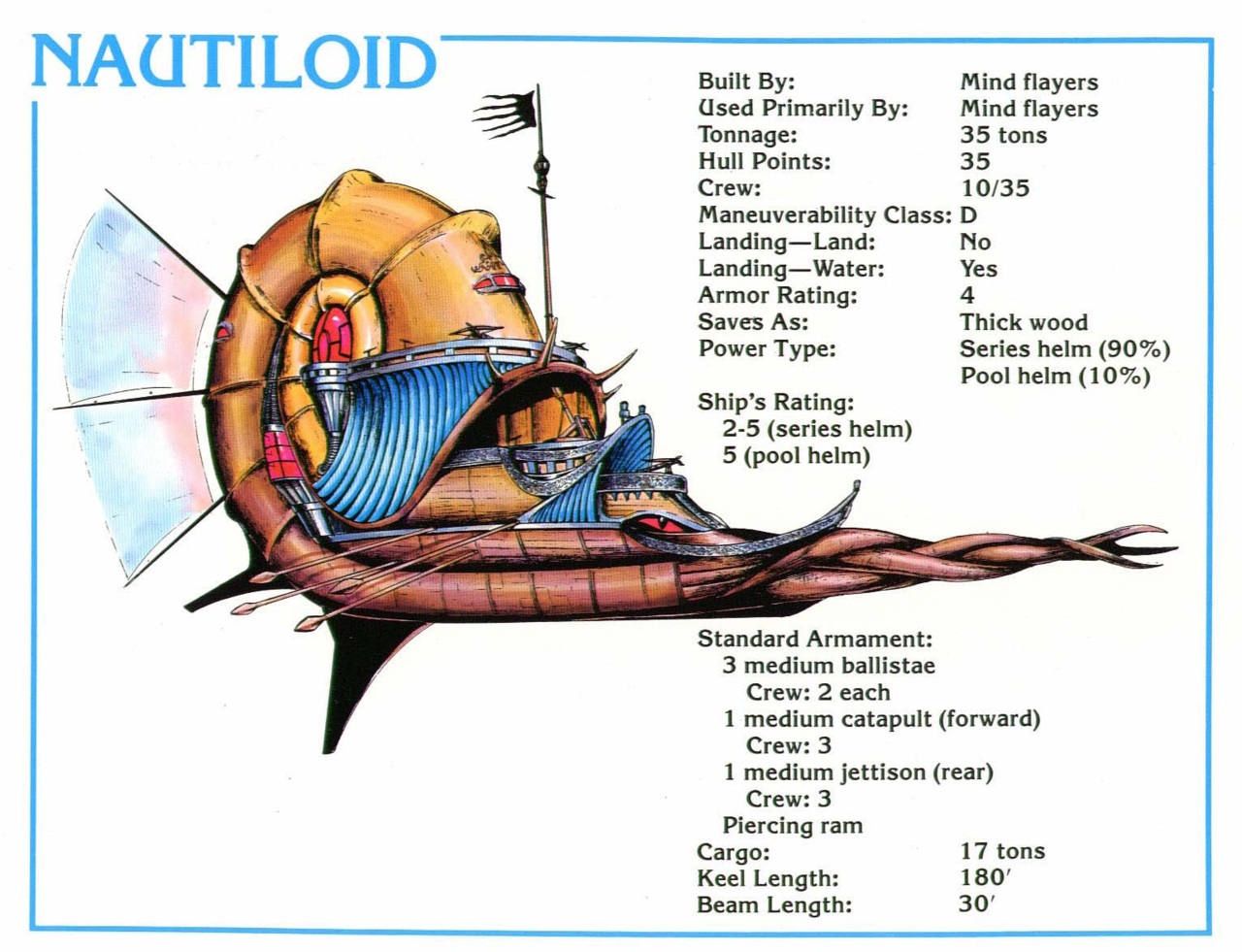
Spelljammer
Spelljammer is a strange by-product to the rapid expansion of the Dungeons and Dragons brand after the introduction Advanced Dungeons and Dragons. Set in space, Spelljammer walks the line between sci-fi and fantasy like no other D&D setting does. Spacecrafts are living organisms hurtling though the abyss, carrying your standard Fighters, Clerics, Wizards, and what not. It would make a great setting for a big, Bioware-style RPG, as there is so much potential for exploring genre tropes like you’ve never seen them before, without the generally confusing and unbalanced rules of the play-set.
Now, a Spelljammer computer game does exist. In 1992, Cybertech made a tactical RPG which tasked players with doing tasks and side quests like trading goods from planet to planet or protecting important people, until you make a name of yourself. Afterwards, you get swept away into the plot, and become a Realmspace-wide hero. It’s difficult to find and doesn’t hold up, and considering sci-fi is a hugely popular genre in games, this is the perfect time for a comeback.
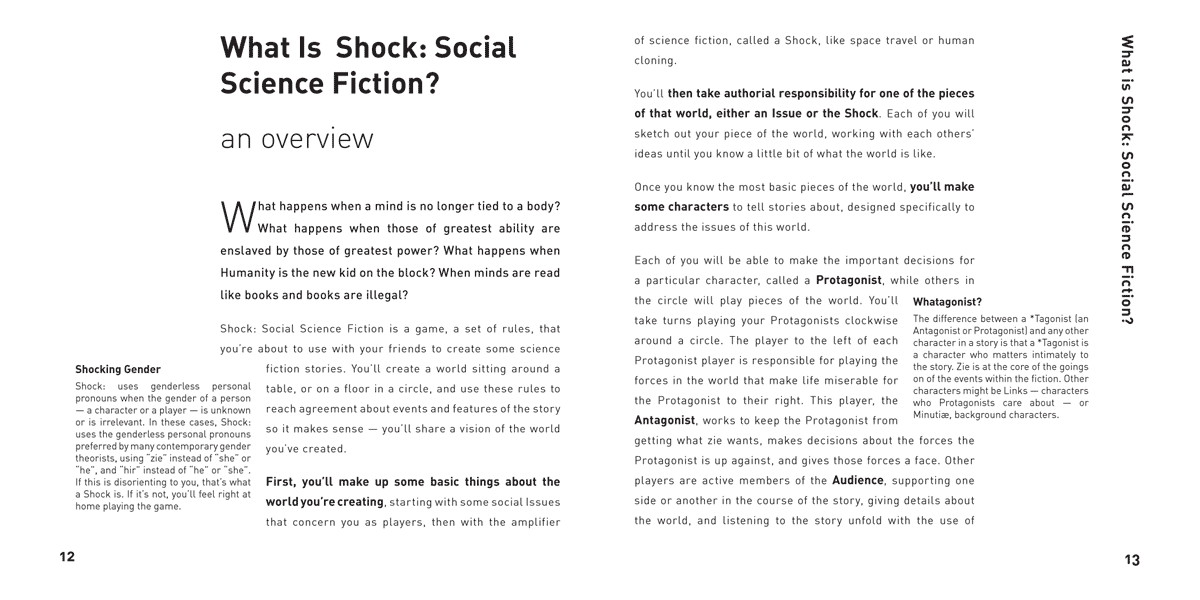
Shock: Social Science Fiction
Shock works an angle in a pen and paper RPG that is rarely front and center: creating a socially and morally changing story above all other things. In fact, unlike most RPGs, combat is an after thought. When players gather to start a game of Shock, the intention is to tell the best story they can with one another. Each player creates a Protagonist, while the player to the left creates an Antagonist for them. The group throws in a list of Shocks and Issues, events that are made to complicate the story in many ways, be it an alien invasion or the rising practice of government surveillance.
What really holds Shock back as a game is the very fast and loose systems holding everything together. What better to stiffen up the mechanical side than having this holistic storytelling tool in the form of a computer game? Games are making their first strides into this realm, with Sword Coast Legends upholding the Dungeon Master/Party dynamic in video game form for the first time.
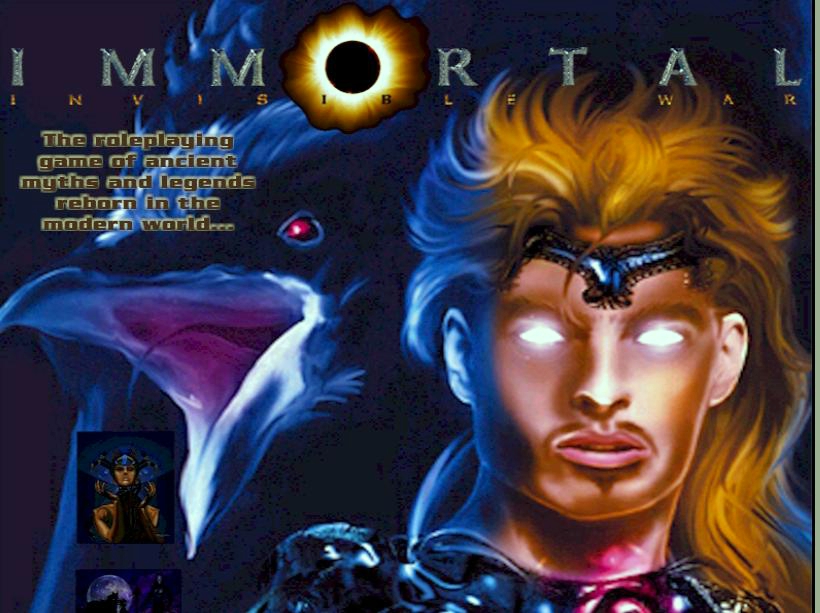
Immortal: The Invisible War
The Invisible War’s setting is almost perfect for an MMO. Player’s take the role of a member of an ancient race of immortal changelings. Through some convoluted sort of evolution/shape-shifting, a player character could very well have lived their past lives as a god or some sort of monstrous beast. Through the course of the game, you spend a lot of time attempting to remember what you were, as well as plotting your course towards what you will be next. Much of the games specifics are incredibly difficult to follow, but to simplify: there is a war among immortals for some reason, and every time you re-incarnate, you have to figure out your place in it again.
The setting is modern day, but there’s so much high fantasy mysticism in the lore that you could easily find ways to throw a sword in someone’s hand. No one really knows how many Highlander like immortals really exist, and they all have their own alliances and motivations, so big sprawling game that accommodates a lot of players at once is the perfect space for this.

It Came From the Late, Late, Late Show
The exact details of this late 80’s RPG are less important to a game translation as its general premise, all the players are actors in a cheesy 80’s horror movie that has come to life. The game master was the director and writer of the movie, and the actors have to survive their concoction it the most B-movie ways possible. You have your run of the mill RPG organization – skills, stats, weapons, etc. – but with a twist. After making your character, you don’t have control over much outside of that, like what your equipped with or who you travel with. The signature value that helps players get a say in their action is Fame. You can use fame to negotiate better terms with the director, like having better items, re rolling a save, or even just skipping to a part of the script where everyone is safe. The most movies (i.e. adventures) an actor survives, the more Fame they get, and the harder they are to kill is subsequent movies.
I could see this game as a second coming of the Lionhead game, The Movies. Instead of taking control of a whole studio and micro managing its personalities and budget, this could be turned into an asymmetrical multiplayer game. Like the Sims, except each member of the household is controlled by someone, and one non housemate player is in charge of removing all of the ladders from the swimming pools.
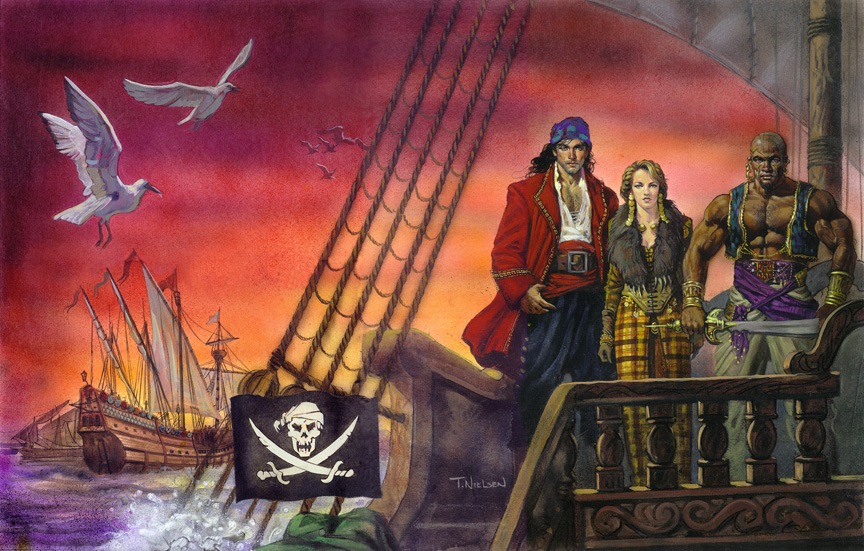
7th Sea
Winning the Origins Award for Best Roleplaying Game in 1999 the pirate-centric 7th Sea. Taking many cues from 17th century Europe, the blend of real world historical fiction and high fantasy staples really hit a cord with certain communities in the early 2000s. The setting had a lot of potential, expanding into novels and its own trading card game. Eventually, card game would get cancelled, and the play setting would go out of print by the end of the decade.
Pirates are still pretty cool, though. The high seas are a great setting for an open world RPG, and this is the perfect time for it.
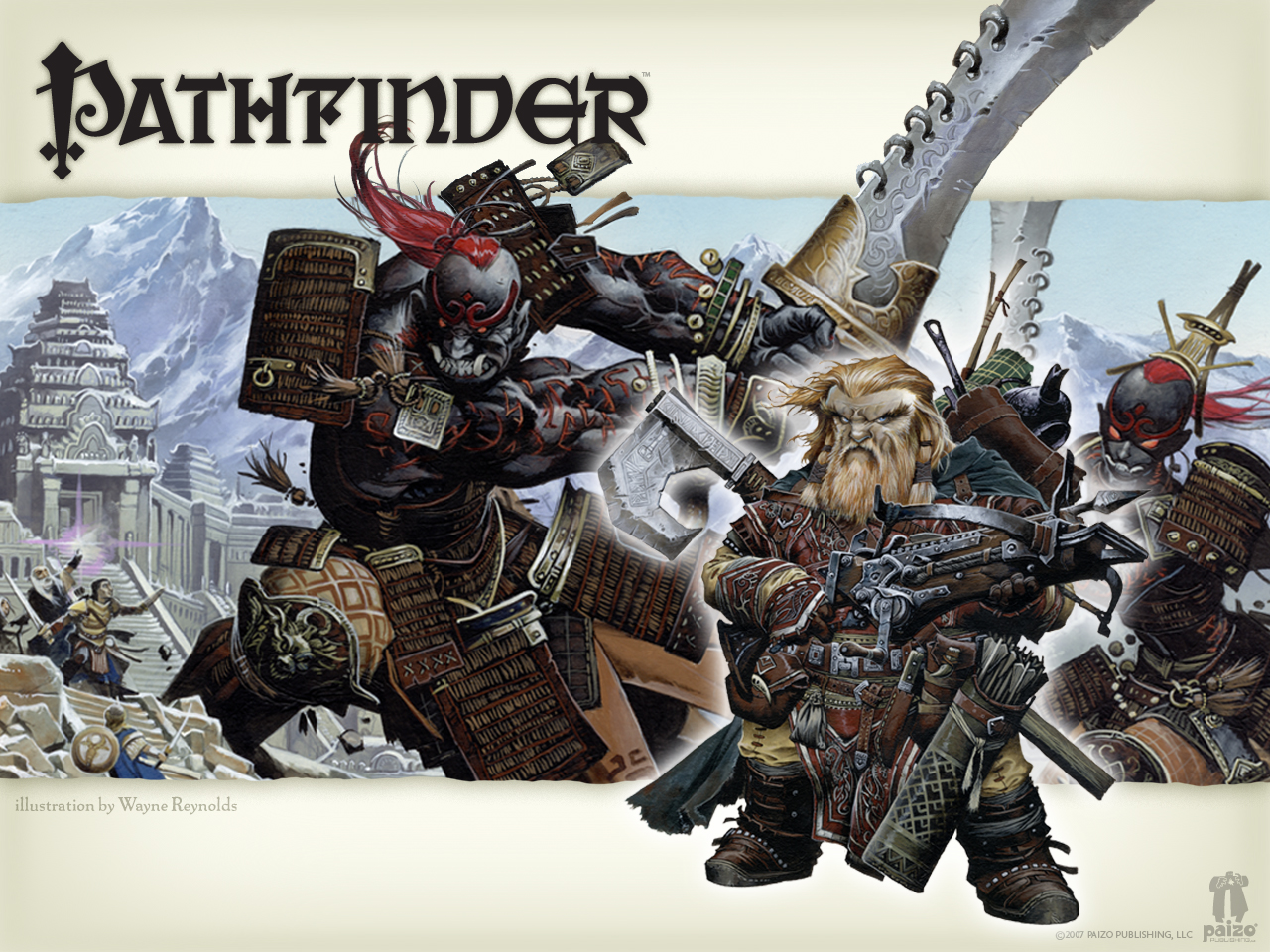
Pathfinder
The D&D alternative that was released between 3rd and 4th editions, Pathfinder takes rules from the 3rd Edition (and 3.5, which is a long story) and melds them into a perfect balance of old school and new school design. Pathfinder uses some of the well known features of the game it is inspired by, but much of it had to change, thanks to copyright issues. Certain monsters, like the iconic Lovecraftian Beholder, isn’t present in any official Paizo materials. The setting Pathfinder creates from its D&D source also takes the best parts of of the most popular settings in history, like Eberron and The Forgotten Realms.
Unlike D&D proper, Pathfinder sorta melds all of the pen and paper cultural staples into one big world. Gunslingers walk among samurai, who share towns with wizards and clerics. Such an eclectic world would be a real treat to experience as a western RPG.
